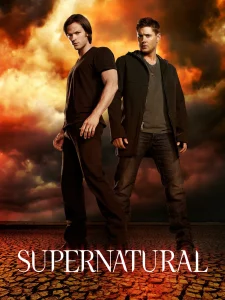Introduction
Fan fiction is a creative outlet that has gained increasing recognition over the past few decades. Once a niche activity largely confined to small online communities, fan fiction has evolved into a significant cultural force, influencing not only the entertainment industry but also how we engage with stories, characters, and fandoms. From humble beginnings to mainstream popularity, fan fiction’s power lies in its ability to transform and challenge traditional storytelling boundaries. This article explores the transformative power of fan fiction, its impact on creative expression, and how it is shaping modern entertainment and fandoms.
The Rise of Fan Fiction

Fan fiction is defined as fictional writing created by fans of an existing work, using its characters, settings, and plotlines to craft their own narratives. It emerged from early fan communities in the 1960s and 1970s, primarily as written works inspired by popular science fiction and fantasy television series like Star Trek. Fans would create their own stories and share them in fanzines (fan-made magazines), allowing them to further explore the worlds they loved.
The digital age accelerated the growth of fan fiction by providing easy access to online platforms. Websites like FanFiction.net and Archive of Our Own (AO3) allowed fans to post their works, offering a global stage for fan creators to connect. Today, fan fiction is not limited to niche subcultures but extends into mainstream media. From Harry Potter to Marvel’s Avengers, countless franchises now have vibrant fan fiction communities. This democratization of storytelling has transformed the way audiences interact with popular media, as fan-created content becomes an integral part of the experience.
The Impact of Technology on Fan Fiction
The rise of digital platforms has played a big role in the growth of fan fiction. Websites like Archive of Our Own, Wattpad, and FanFiction.net have made it easy for writers to share their stories and receive feedback. Social media platforms, such as Tumblr and Twitter, also help fan fiction communities stay connected and grow. Technology has made it possible for fan fiction to reach a global audience, where writers and readers can interact, share ideas, and find support. This connection between fans from around the world has helped fan fiction thrive in ways that weren’t possible before.
How Fan Fiction Influences Popular Culture

Fan fiction has had a big impact on popular culture. The influence of fan fiction can be seen in how media companies and creators sometimes respond to fan desires. For instance, fans’ reactions to a particular character or relationship might inspire official storylines or even lead to new content. Some famous movies and shows, like Fifty Shades of Grey, started as fan fiction before becoming mainstream hits. This shows how fan fiction can shape the way stories are told and even affect what content gets produced. The growing recognition of fan fiction proves just how powerful it can be in influencing culture.
The Power of Fan Fiction in Storytelling

One of the most notable aspects of fan fiction is its ability to reshape traditional narratives. By taking existing stories and reinterpreting them, fan fiction offers new perspectives on characters, settings, and plots. Writers can explore alternative scenarios, relationships, and endings that the original creators did not, or could not, delve into. This power to alter or expand the storylines gives fans a sense of agency and ownership over the content.
Fan fiction also allows marginalized voices to be heard. In many cases, fan writers use fan fiction as a platform to explore issues of identity, including gender, sexuality, and race, in ways that may not be addressed in the original source material. For example, queer fan fiction, which often explores same-sex relationships between characters, has played a significant role in advocating for LGBTQ+ representation in media.
Moreover, fan fiction writers frequently provide character development or closure for characters that may have been underdeveloped or whose arcs were left unresolved. This act of filling in the gaps of a beloved universe creates deeper emotional connections between fans and the media they consume.
The Community Aspect of Fan Fiction

Fan fiction is not just about the stories themselves but also about the communities that form around them. These communities allow fans to connect, collaborate, and share their love for specific franchises. Through comments, reviews, and forums, writers and readers form relationships based on shared interests and creativity.
The power of fan fiction is magnified by the sense of belonging that fans find in these communities. The feedback and support they receive from fellow fans often push writers to improve their craft and produce more works. This collaborative environment fosters a sense of empowerment, encouraging fans to express their creativity and explore new ideas.
These communities also have a role in shaping the content produced. The interaction between fans and creators often influences how a franchise evolves. For example, the Supernatural television show has incorporated fan theories, ideas, and ships (romantic pairings of characters) into its official storyline, demonstrating the impact of fan-generated content on mainstream media.
Fan Fiction and Its Impact on the Entertainment Industry

Fan fiction has a unique relationship with the entertainment industry. At times, it is seen as a form of rebellion or resistance against the traditional power structures of Hollywood and publishing, where control over storytelling is typically held by corporations. Through fan fiction, creators can experiment with alternative narratives outside of the constraints of commercial expectations.
In some cases, fan fiction has even influenced mainstream media in direct and indirect ways. For instance, Fifty Shades of Grey began as a Twilight fan fiction before being reworked and published as an independent novel. This crossover from fan fiction to mainstream success has opened the door for a broader acceptance of fan-created content in the professional world.
Furthermore, the growing popularity of fan fiction has led to increased recognition of fan communities as valuable contributors to the cultural landscape. For instance, some media companies now acknowledge fan fiction’s role in keeping their franchises alive and relevant. As a result, there is an increasing push for the protection of fan works through copyright laws and for better collaboration between fans and creators.
Legal and Ethical Issues Surrounding Fan Fiction

Despite its growth and popularity, fan fiction often faces legal challenges. The most significant issue revolves around copyright law, as fan fiction writers use existing characters and settings without permission from the original creators. While fan fiction is generally seen as a transformative work, many copyright holders view it as an infringement of their intellectual property.
However, the legality of fan fiction is still an area of gray. In some instances, copyright holders have embraced fan works, allowing them to exist as long as they are non-commercial. Others, however, have cracked down on fan content, issuing cease-and-desist orders and taking legal action. This ongoing debate highlights the tension between creators’ rights and fans’ desire to engage with the content in a more personal and creative way.
Challenges of Fan Fiction

Despite its popularity, fan fiction faces several challenges. One of the biggest issues is the legal side, as fan fiction often uses characters and stories that are copyrighted. This has led to debates about intellectual property and whether fan fiction is an infringement of rights. Some creators embrace fan fiction, while others do not, which can lead to confusion and conflict. Additionally, the quality of fan fiction can vary, and because it’s often free and unedited, some stories may not meet the same standards as professionally published works.
The Future of Fan Fiction

Looking ahead, the power of fan fiction will likely continue to grow. The advent of new technologies, such as artificial intelligence and virtual reality, may provide fans with even more tools to engage with their favorite universes. Additionally, fan fiction may continue to challenge traditional publishing and entertainment industries, leading to more inclusive and diverse forms of storytelling.
As the lines between professional creators and amateur writers continue to blur, fan fiction will play a crucial role in defining the future of media. Whether it’s through new platforms, collaborations, or increased recognition, fan fiction will remain an essential part of how we experience stories and interact with popular culture.
Analysis Table: The Transformative Impact of Fan Fiction
| Aspect | Impact of Fan Fiction |
|---|---|
| Storytelling | Enables alternate narratives, character exploration, and closure. Expands universes through fan-created content. |
| Community Building | Fosters online communities where fans connect, share, and collaborate. Creates a sense of belonging and empowers writers. |
| Representation | Provides marginalized groups a platform for inclusive representation (e.g., LGBTQ+ stories). |
| Entertainment Industry | Influences mainstream media, with fan-created content inspiring commercial products and reshaping franchises. |
| Legal Issues | Faces copyright challenges, with some works embraced and others restricted, creating tension over intellectual property rights. |
Comparative Table: Fan Fiction vs. Traditional Storytelling
| Feature | Fan Fiction | Traditional Storytelling |
|---|---|---|
| Ownership | Created by fans who have no ownership over original characters or plotlines. | Controlled by creators, authors, and media companies with full ownership rights. |
| Creativity | Allows freedom to alter, expand, or diverge from original narratives. | Often constrained by the creator’s vision and commercial pressures. |
| Community Engagement | Strong emphasis on community feedback, collaboration, and shared creativity. | Limited interaction between creator and audience, typically passive consumption of content. |
| Legal Status | Can be seen as illegal, with creators and companies enforcing copyright laws. | Fully protected under copyright laws with formal agreements and contracts. |
| Character Development | Provides opportunities for fans to develop characters further or resolve unresolved story arcs. | Development of characters is at the discretion of the original creators. |
Conclusion
Fan fiction is a powerful force in modern storytelling, offering fans a way to explore, challenge, and expand the universes they love. Whether it’s through creating inclusive narratives, building online communities, or influencing mainstream media, the impact of fan fiction is undeniable. While legal and ethical concerns continue to evolve, the growing recognition of fan fiction as a legitimate form of creative expression is reshaping how we engage with stories. As long as fans continue to create, the transformative power of fan fiction will only grow stronger.











